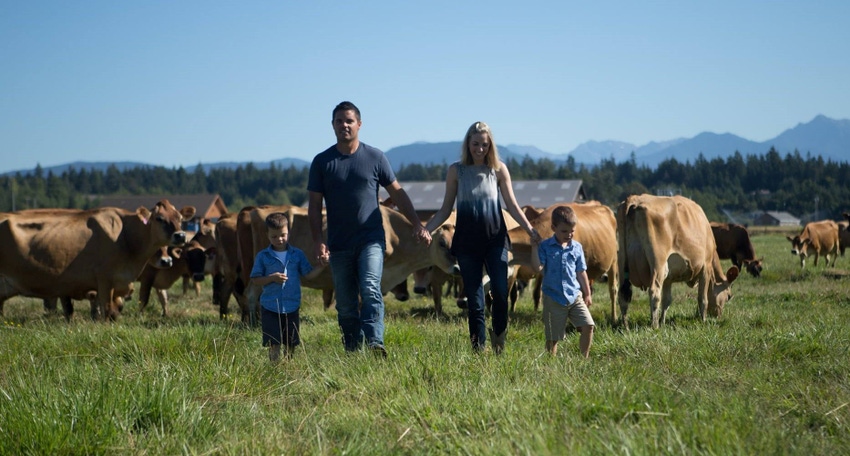
The founder of Farmer Veteran Coalition likes to joke that it took him a full year of driving up and down the coast of California to find enough farmers who were also veterans to join his group.
Now entering its 13th year, with 30,000 former armed services members who exchanged military uniforms for bib overalls and Humvees for a tractor, FVC maintains its vision of uniting the agricultural world with veterans. They look at it as serving their country twice --- once by defending it and once by feeding it.
“Veterans put their lives on the line to protect us. It’s an honor to help them grow their operations so they can continue to feed their communities,” says Executive Director Jeanette Lombardo.
Founder Michael O’Gorman, who at the time was farming 1,600 acres in Mexico, got the initial group together in 2007 to talk about creating farm jobs for returning veterans. They looked for partners, searching some 40,000 groups, but could not find one organized to introduce veterans to agriculture even as large numbers of military were returning to small towns across the country.
The spark was ignited and O’Gorman left a four-decade career in production agriculture to embark on a personal journey to help a new generation of farmers. Establishing a base in Davis, Calif., the group attracted partners and found its greatest ally in the USDA through its micro-loan program to help veterans transition from service careers to farm careers.
“Not only did he build the farmer veteran coalition, he spurred the whole military-to-agriculture movement, attracting some 300 partner organizations across the agriculture-military communities to help returning soldiers make the transition,” added group communications manager Natalie Monroe.
Not only was it an inherently good idea, the timing was right as America’s farmers were beginning to age out and looking for younger replacements. “We’re here on a two-fold mission,” said Monroe. “Veterans returning home are looking for a sense of purpose, to find something meaningful like a career in agriculture that has physical and psychological benefits that are healing and therapeutic.
“We’re also aware that the farming community is aging out and this project helps with one of the ag industry’s biggest problems, human capital. So we’re helping cultivate the next generation of farmers, giving veterans new life that simultaneously nourishes their respective communities and fills that need for a new generation of farmers.”
Helping vets cope
And that includes a staggering number of vets who have service-connected disabilities, physical or emotional, from limb loss to vision impairment or PTSD. “We find ways to support these veterans trying to take on their new role in agriculture, providing them with equipment and education, to further their own farming mission,” Monroe said.
The range of possibilities is nearly unlimited. Some veterans are growing hops. Some are cultivating grapes for wine production. Others gravitated to cattle, sheep, domestic fowl, or alpacas. “Some are working on value-added products like jams and chili peppers. We have representation across the board, from commodity crops to niche areas,” she said.
One of those, Army alumni Ryan McCarthey, who deployed to Iraq to conduct agricultural assessments, joined his wife’s family dairy operation in Western Washington. He now calls himself “a farmer’s husband’ and works with FVC grants to upgrade their raw milk dairy.
In Oregon, Marine veteran Ben Martin, an early recipient of Farmer Veteran Fellowship funding, went another direction --- viticulture --- despite zero experience in that area. “We started out making wine in the back of a horse barn. FVC gave us a grant for bottling supplies and if it weren’t for them we wouldn’t have --- well, actually, I don’t know what we would have done without them,” he admits.
For retired Army Master Sargent Mike Williams and wife Paula (also an Army veteran), the lure was Alaska, initially taking over a hunting/fishing lodge until salmon fishing diminished, then deciding to grow flowers, specifically peonies.
“Despite growing up in Illinois farm country, I had no agricultural experience, but felt it was possible to build EagleSong Peony Farm in a remote location. With advice, support, and an equipment grant from Farmer Veteran Coalition, we have done so and are now expanding into the distillation of flower oils for other value-added products,” he said.
“Although being a risk-taker is part of a farmer’s DNA, our military experience gave us the ability to focus on the job at hand while looking at the big picture.”
Remembering 9/11
To commemorate the 20th anniversary of the Sept. 11, 2001 terrorist attacks, FVC has compiled a series of member reflections on video, military members who were particularly impacted by that day. Some even entered the service as a direct result of the act of terrorism. Their reflections will give insight into where they were that day, how they remember the events, and how they impacted both their service experience and their lives.
And with the official end of America’s longest war and returnees from Afghanistan looking toward their future, “We want to make those veterans --- especially those from a rural lifestyle perhaps returning to family farms --- aware we exist,” says Monroe.
“Many of those skills gained by serving in the military are directly translatable to agriculture. There’s a certain mindset of a mission-driven work ethic and working until the job is done, so, yes, we’re ready to serve all those who want to take a dabble in agriculture.”
Veterans’ stories can be found on the coalition’s website, farmvetco.org.
About the Author(s)
You May Also Like




